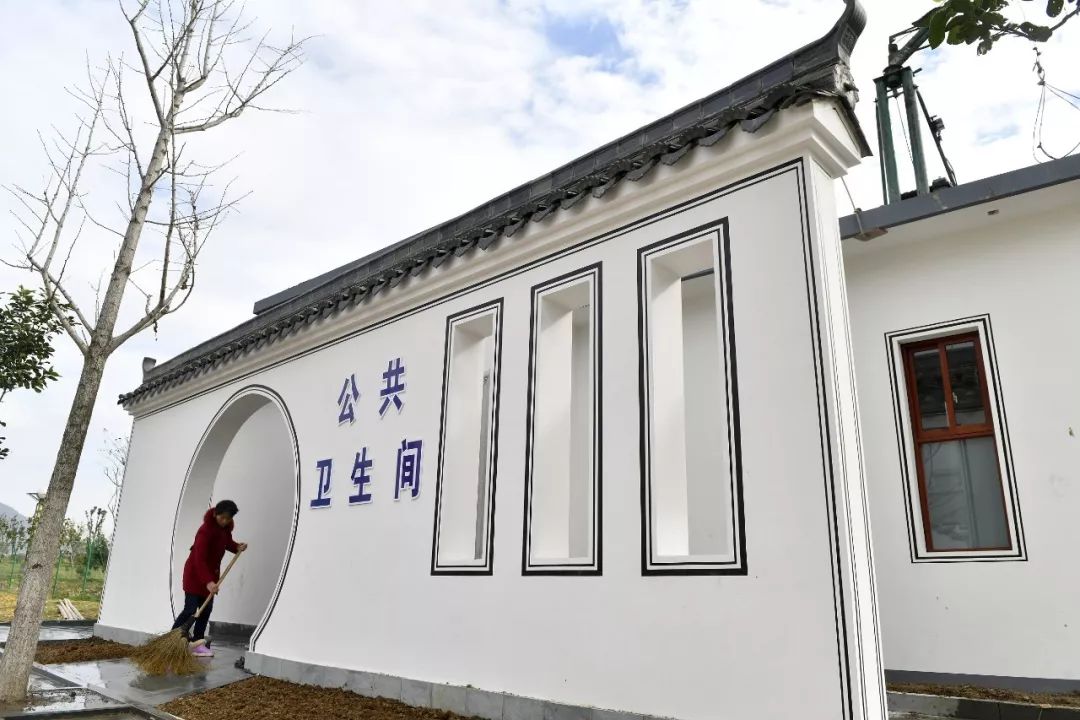CCTV News:On March 17th, the Report on the Implementation of the National Economic and Social Development Plan in 2018 and the Draft National Economic and Social Development Plan in 2019 was officially released. The report makes detailed arrangements for China’s economic and social development in 2019. What projects and projects should be promoted and implemented this year? Let’s watch together!
infrastructure construction
1. Support key urban agglomerations such as Beijing-Tianjin-Hebei, Yangtze River Delta, Guangdong-Hong Kong-Macao Greater Bay Area, Shandong Peninsula and Beibu Gulf to accelerate the planning and construction of intercity railways and municipal (suburban) railways.
2. Do a good job in the construction of follow-up projects in the Three Gorges reservoir area, and pay close attention to the preliminary work of major projects such as the new waterway of the Three Gorges Project and the Gezhouba Shipping Capacity Expansion Project.
3. Plan and build a new land and sea passage in the west.
4. Accelerate the construction of a "national network" for the interconnection of natural gas pipeline network facilities.
5. Accelerate the planning and construction of major projects such as sichuan-tibet railway, high-speed railway along the Yangtze River, north-south coal transportation channel system, trans-regional transmission channel and southwest hydropower.
6. Promote the construction, relocation, reconstruction and expansion of hub airports, build regional airports and general airports in an orderly manner, accelerate the preparatory work for the construction and operation of Beijing Daxing International Airport, and ensure that it is completed and put into operation before the end of September.
7. Vigorously promote the construction of comprehensive passenger transport hub and logistics hub, formulate the implementation plan for the construction of national logistics hub network, support the construction of the railway between the port and the port, and get through the "last mile" of transportation.

innovative development
8. Organize the implementation of a new round of technological transformation and upgrading projects, and use new technologies such as the Internet, big data and artificial intelligence and advanced and applicable green technologies, technologies and equipment to transform traditional industries.
9. Formulate and implement the "internet plus Action" in the new era, implement the digital economy and the "internet plus" major projects, build a pilot zone for innovative application of artificial intelligence, and continue to promote the construction of a comprehensive experimental zone for big data.
10. Accelerate the pace of 5G commercialization and IPv6 scale deployment, and strengthen the construction and integrated application of new infrastructure such as artificial intelligence, industrial Internet and Internet of Things.
11. In-depth implementation of the biological industry multiplication project to promote the integration and development of biotechnology and information technology.
12 to promote the construction of new information consumption demonstration cities and new information consumption demonstration projects.
13. Accelerate the implementation of major national science and technology projects and scientific and technological innovation 2030— Major projects.
14. Pay close attention to the layout of national laboratories and reorganize the national key laboratory system.
15. Strengthen the construction of national industrial innovation centers, support the construction of a new batch of national independent innovation demonstration zones, and build a number of national manufacturing innovation centers in key areas.
16. Accelerate the establishment of a Beijing-Tianjin-Hebei collaborative innovation community, support the construction of science and technology innovation centers in Beijing and Shanghai, and support the construction of three comprehensive national science centers in Huairou, Beijing, Zhangjiang, Shanghai and Hefei, Anhui.
17. Study and vigorously support the construction of Guangdong-Hong Kong-Macao Greater Bay Area International Science and Technology Innovation Center and lay out the construction of a comprehensive national science center.
Social livelihood
18. Carry out a three-year campaign against counterfeiting.
19 in-depth implementation of the "same line with the same standard homogeneity" project, strengthen the construction of important commodity quality traceability system.
20. Carry out the special action of linking urban enterprises with inclusive old-age care.
21. Promote the relocation and transformation of dangerous chemicals production enterprises in old industrial areas and densely populated urban areas.
22. Promote the transformation of old urban communities in an orderly manner, and support the installation of elevators and the construction of barrier-free environment.
23 to promote the construction of underground utility tunnel, sponge city and urban drainage and flood prevention facilities.
24. In-depth implementation of the employment and entrepreneurship promotion plan for college graduates and the grass-roots growth plan, and the implementation of the three-year million-year youth internship plan.
25. Continue to carry out the renovation of dilapidated houses in rural areas, continue to do a good job in the renovation of shanty towns, and further standardize the development of public rental housing.
26. Continue to implement the project of improving the ability to diagnose and treat difficult diseases and inheriting and innovating traditional Chinese medicine.
27. Promote the implementation of social service projects and improve the construction level of service facilities for the elderly, the disabled, children in distress, left-behind children in rural areas, and patients with mental disorders.
Ecological management
28. Focus on winning seven major battles, including defending the blue sky, pollution control of diesel trucks, treatment of urban black and odorous water bodies, protection and restoration of the Yangtze River, comprehensive treatment of Bohai Sea, pollution control of agriculture and rural areas, and protection of water sources.
29. Implement a three-year action to improve the quality and efficiency of urban sewage treatment.
30. Comprehensively promote the classification of municipal solid waste.
31. Organize and implement the pilot project of "no waste city" construction and the pollution prevention and control action of waste lead batteries.
32. Effectively promote clean heating in winter in the northern region, and concentrate resources to promote loose coal control in Beijing, Tianjin and Hebei and surrounding areas and Fenwei Plain.
33. Strengthen the construction of natural gas production, supply, storage and marketing system, and orderly implement measures such as changing coal into gas in accordance with the principle of "changing with gas".
34. Comprehensively carry out the demarcation of ecological protection red line and build a regulatory platform for ecological protection red line.
35. Implement national water-saving actions to improve the management level and utilization efficiency of water resources.
36. Accelerate the implementation of green manufacturing projects and promote the development of green industries such as energy conservation and environmental protection.
cultural tour
37. Transform and upgrade pedestrian streets in key cities.
38. Promote the construction of Hainan International Tourism Consumption Center, Pingtan International Tourism Island and Hengqin International Leisure Tourism Island.
39. Organize the implementation of the action plan for upgrading the tourism infrastructure in deep poverty areas such as "three districts and three states" (2018-2020).
40. Promote the construction of key tourist areas and national key cultural projects.
41. Continue to implement the cultural tourism upgrading project and support the construction of public cultural service facilities, national cultural and natural heritage protection and utilization facilities, tourism infrastructure and public service facilities.
42. Promote the construction of the Grand Canal Cultural Belt, and actively promote the construction of major cultural projects such as the Ping ‘an Palace Museum, the National Art Museum, the China Arts and Crafts Museum, and the National Library’s National Literature Strategic Reserve.
43. Vigorously promote the implementation of the overall construction plan for the third phase of the national red tourism classic scenic spot.
44. Promote the construction of Winter Olympics venues and intensify the construction of sports facilities.
45. Run the 2019 Beijing World Horticultural Exposition well.
coordinated development
46. Promote the coordinated development of Beijing-Tianjin-Hebei, actively, steadily and orderly promote the functional relief of Beijing’s non-capital, introduce and implement the relevant planning of xiong’an new area and supporting implementation plans for reform and opening up, promote the construction of infrastructure projects such as transportation, ecology and public services, continue to promote the construction of Beijing’s sub-center, and build a functional area for water conservation and ecological environment support in the capital.
47. Further promote the development of the Yangtze River Economic Belt, solidly promote the "Three Rivers Control" and the "4+1" project of ecological environment control, and give full play to the respective advantages of railways, highways and waterways to design an integrated transportation system.
48. Prepare special plans for Guangdong-Hong Kong-Macao Greater Bay Area’s industrial development, infrastructure and ecological environment, and support the construction of Guangdong, Hong Kong and Macao cooperative development platforms such as Shenzhen Qianhai, Guangzhou Nansha and Zhuhai Hengqin.
Enhance the vitality of market players
49. Vigorously promote containerized transportation, continue to promote multimodal transport demonstration projects, and effectively reduce logistics costs.
50. Carry out special actions to control government dishonesty in the field of property rights protection.
51. Carry out in-depth special actions to clear the accounts owed to private enterprises and small and medium-sized enterprises, and continue to clean up the deposits in the field of standardized engineering construction.
52. Promote trustworthiness, encourage innovation, explore and expand the "Xinyi+"service project, and realize credit to benefit the people and facilitate enterprises.
53. Carry out special rectification on the problem of excluding and restricting the bidding of private enterprises.
Construction of "agriculture, countryside and farmers"
54. Fully implement the governor’s responsibility system for food security, further promote the high-quality food project, and ensure that the grain planting area is stable at 1.65 billion mu.
55. Complete the delineation of grain production functional zones and important agricultural products production protection zones, strengthen the construction of farmland water conservancy, and add more than 80 million mu of high-standard farmland.
56. Implement the protection project of geographical indication agricultural products and promote the mechanization of agriculture in the whole process.
57. Vigorously support the consolidation and upgrading of rural drinking water safety and other projects.
58. Do a good job in the three-year action of rural human settlements improvement, focus on promoting the "toilet revolution", do a good job in rural domestic garbage sewage treatment, and promote garbage classification and resource utilization.
59. Implement village infrastructure construction projects and build or rebuild 200,000 kilometers of rural roads.

international cooperation
60. Run the second "Belt and Road" international cooperation summit forum well.
61. We will further promote cooperation in the construction of the Digital Silk Road and promote China-ASEAN smart city network cooperation.
62. Promote the high-quality development of China-Europe trains and accelerate the global layout of "Silk Road E-commerce".
63. Promote the development of key open pilot zones and cross-border economic cooperation zones along the border.
64. Support Northeast China to build an important window for China’s opening to the north and a central hub for cooperation in Northeast Asia.
65. Vigorously promote the international mutual recognition cooperation of "certified operators" (AEO).
66. Run the second China International Import Expo well.
67. A new area of Shanghai Pilot Free Trade Zone will be added, and the entry and exit policies and measures supporting the Pilot Free Trade Zone and the comprehensive innovation and reform pilot zone will be extended to the whole country.
68. We will thoroughly implement various policies and measures to support Hainan’s comprehensive deepening of reform and opening up, build an island-wide pilot free trade zone with high quality, and explore the construction of a free trade port with China characteristics.
Other engineering projects
69. Further promote the construction of major demonstration projects in integration of defense and civilian technologies and innovation demonstration zones in integration of defense and civilian technologies, and promote the industrial development in integration of defense and civilian technologies.
70. Pay close attention to the establishment of a national integrated online government service platform, and accelerate the realization of one-line operation and remote operation.


































